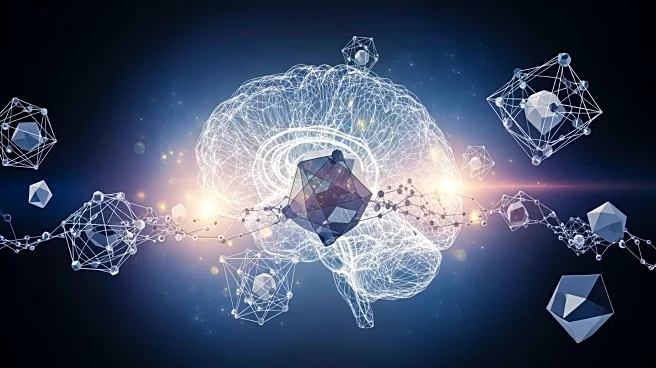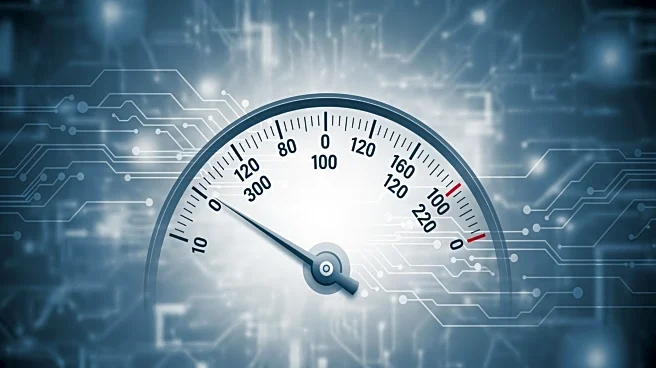What's Happening?
Recent research has highlighted how the human brain constructs its own version of reality, a process that is crucial for survival. The study, involving neuroscientists like Hyeyoung Shin, PhD, from Seoul
National University, explores how the brain's primary visual cortex (V1) interprets sensory information. This area of the brain doesn't merely capture images but actively decides what we perceive, filling in gaps based on past experiences. The research involved experiments with mice, where specific neurons in V1 were stimulated to create visual illusions, demonstrating the brain's role in constructing perceived reality. This finding underscores the brain's function as an 'intelligent guesser,' rather than a passive recorder of sensory input.
Why It's Important?
Understanding how the brain constructs reality has significant implications for various fields, including psychology, neuroscience, and even artificial intelligence. This research suggests that perception is not a direct reflection of the external world but a subjective interpretation shaped by past experiences. Such insights could influence how mental health conditions are treated, particularly those involving perception and cognition. Additionally, this knowledge could inform the development of AI systems that mimic human perception, potentially leading to more advanced and intuitive technologies. The study also raises philosophical questions about the nature of reality and our ability to perceive it accurately.
What's Next?
Future research may focus on further identifying the specific neural mechanisms involved in perception and how these processes can be influenced or altered. This could lead to advancements in treating perceptual disorders or enhancing human cognitive abilities. Additionally, there may be interest in exploring how these findings can be applied to improve AI systems, making them more efficient in processing and interpreting sensory data. The study also opens up discussions on the ethical implications of manipulating perception, whether for therapeutic purposes or in the development of technology.
Beyond the Headlines
The study's findings suggest that our perception of reality is a complex interplay between sensory input and cognitive processes. This challenges the traditional view of perception as a straightforward reflection of the external world. It also highlights the brain's efficiency in conserving energy by using past experiences to fill in perceptual gaps. This efficiency is crucial for survival, allowing quick decision-making in response to environmental stimuli. The research invites further exploration into how these processes have evolved and their implications for understanding human consciousness.










